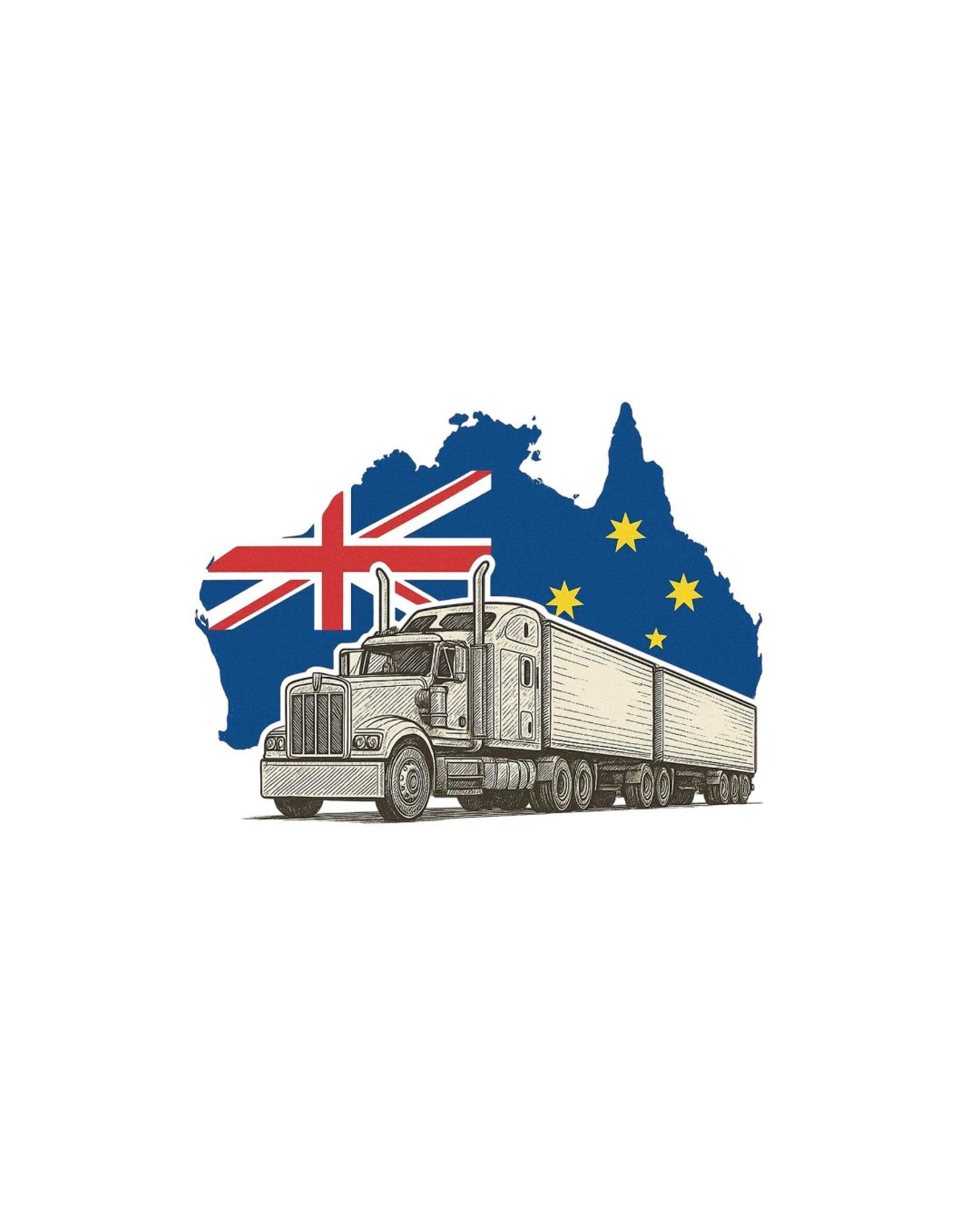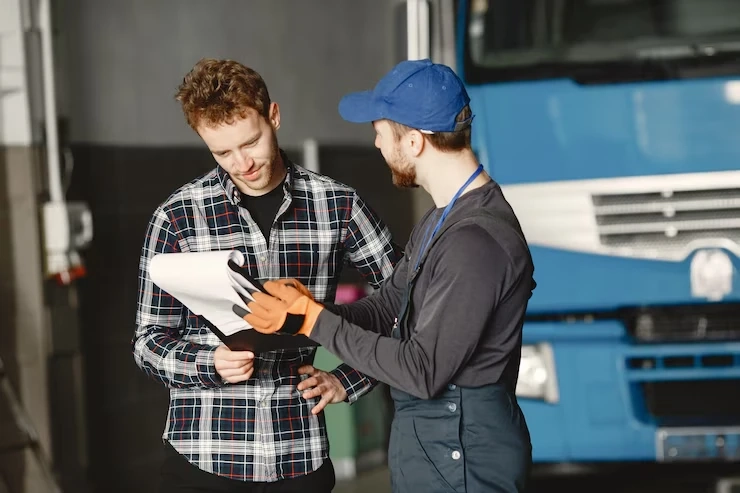If you’re thinking about getting serious with truck driving in Australia, picking the right licence courses for truck drivers is a big first step. It’s one of those decisions that can shape not only your next job but your whole career.
There are three main licences you’ll come across: HR, HC, and MC, and they each qualify you to drive different types of trucks. That’s why it’s worth taking the time to understand what each one actually covers, who they’re best for, and what sort of work you can do once you have them.
Here’s a down-to-earth guide that breaks it all down without the jargon.
First, What Do These Licences Actually Mean?
Let’s keep it simple.
- HR (Heavy Rigid) Licence: This is basically for big trucks or buses with three or more axles, weighing over 8 tonnes. You can also tow a trailer that’s up to 9 tonnes. Think of big delivery trucks, concrete trucks, or city buses.
- HC (Heavy Combination) Licence: This one’s the next level. You’ll be able to drive a prime mover with a semi-trailer, or a rigid truck pulling a trailer heavier than 9 tonnes. If you see a single big trailer hooked up to a cab, that’s what this licence covers.
- MC (Multi Combination) Licence: The highest class you can get. This lets you drive B-doubles and road trains, the really long rigs you spot crossing regional highways.
Your choice depends on what you’d like to drive and how much experience you’ve already got.
HR Licence: Where Most Drivers Begin
Most people kick off their heavy vehicle career with an HR Licence. It’s a good starting point because you can use it for lots of jobs, local freight runs, waste collection, or driving a bus.
What’s Involved in HR Training?
- Doing pre-start safety checks so you don’t get caught out by a mechanical problem.
- Learning to handle the gearbox. If you pick a manual, you might do HR Road Ranger Licence training to get comfortable with non-synchro gearboxes.
- Figuring out how to load and secure cargo so nothing shifts around.
- Practicing driving in traffic and reversing into tight spots.
Who Usually Chooses HR?
- People who’ve had their car licence for at least 2 years.
- Folks who want to get used to big vehicles before trying combinations.
- Drivers who plan to stay mostly in metro or regional areas.
Adding Advanced Skills
If you’re in WA or other states, you might find training providers that run extra courses. These advanced driver training sessions can help you build confidence with manual trucks or improve fuel-efficient driving.
HC Licence: Stepping Up to Trailers
If you’re ready to start towing bigger loads, you’ll probably move on to the HC Licence. This is where you learn how to handle semi-trailers and heavier combinations.
What You Learn in HC Licence Training
- How to hook up and unhook trailers safely.
- Reversing with a trailer attached, which is much trickier than reversing a rigid truck.
- Managing wide turns so the trailer follows properly.
- Balancing loads across the axles.
Who Can Enrol?
To start HC training, you’ll need an HR or MR licence held for at least 12 months. That’s so you’ve already got some hands-on experience before tackling combinations.
Who It’s For
- Drivers wanting to move into long-distance freight work.
- Anyone interested in carting containers or farming goods.
- Drivers thinking about upgrading to an MC Licence later on.
Having HC Licence Training under your belt can open up a lot of job options, especially if you’re keen on regional and interstate work.
MC Licence: The Big League
If you’ve got your sights set on the biggest rigs, the MC Licence is the way to go. It’s a serious qualification that takes time and experience to get.
What You’ll Cover in MC Training
- Handling multiple trailers, including dollies.
- Learning how loads move and sway across different trailers.
- Fatigue management, it’s not just paperwork, it’s about staying alert over long hauls.
- Reversing road trains, which takes a lot of practice and patience.
Who Can Apply?
You must have held an HR or HC Licence for at least a year. This rule’s there to make sure you’ve built the skills and maturity needed to handle multi-combinations safely.
Who Should Do MC?
- Drivers who’ve already logged plenty of hours in heavy vehicles.
- People heading into mining or remote area freight.
- Drivers who want the highest earning potential and maximum job options.
Employers often look for extra proof, like advanced driver training perth certificates and a clean driving record before trusting you with an MC rig.
Picking the Licence That Suits You
Not sure which to choose? Here are some questions to help you think it through:
- What kind of driving do you actually want? If it’s local and predictable, HR could be enough. If you want long-distance or more variety, look at HC or MC.
- Are you happy driving manual trucks? The HR Road Ranger Licence might be worth doing so you’re ready for older vehicles.
- How much experience have you already got? MC training isn’t for beginners.
- What’s in demand where you live? In Perth, for example, many employers prefer drivers with advanced training.
- Do you want to keep your options open? If so, consider starting with HR and working your way up over time.
Why Professional Training Matters
No matter which licence you pick, don’t skimp on the training provider. The quality of the training will set you up for real-world driving, not just passing the test.
Look for courses that:
- Include lots of actual driving, not just theory.
- Offer the chance to learn manual Road Ranger gearboxes.
- Use trucks that are similar to what you’ll use on the job.
- Provide good support for assessments.
- Offer extra training on safe driving habits and efficiency.
The investment pays off in better skills, higher confidence, and more job opportunities down the track.
Quick Recap
Here’s a snapshot of your choices:
- HR Licence
- For rigid vehicles over 8 tonnes.
- Great for local work.
- You can train in auto or manual.
- HC Licence
- Lets you tow big trailers.
- Essential for semi-trailers.
- Expands your options in freight.
- MC Licence
- For B-doubles and road trains.
- Demands experience and discipline.
- Can lead to top-paying jobs.
Final Word
Driving heavy vehicles isn’t just a job, it’s a profession that demands skill and care. The licence you choose now shapes the kind of work you’ll be trusted with later.
If you’re on the fence, have a chat with a trainer or someone already working in transport. Whether you start with HR and build up or jump into HC, taking professional training seriously is the smartest move.
When you’re ready, look into HR Road Ranger Licence, HC Licence Training, or MC Truck Licence Training and see where the road can take you.





